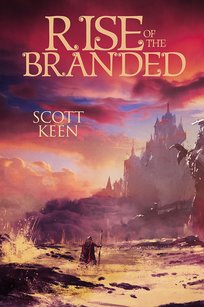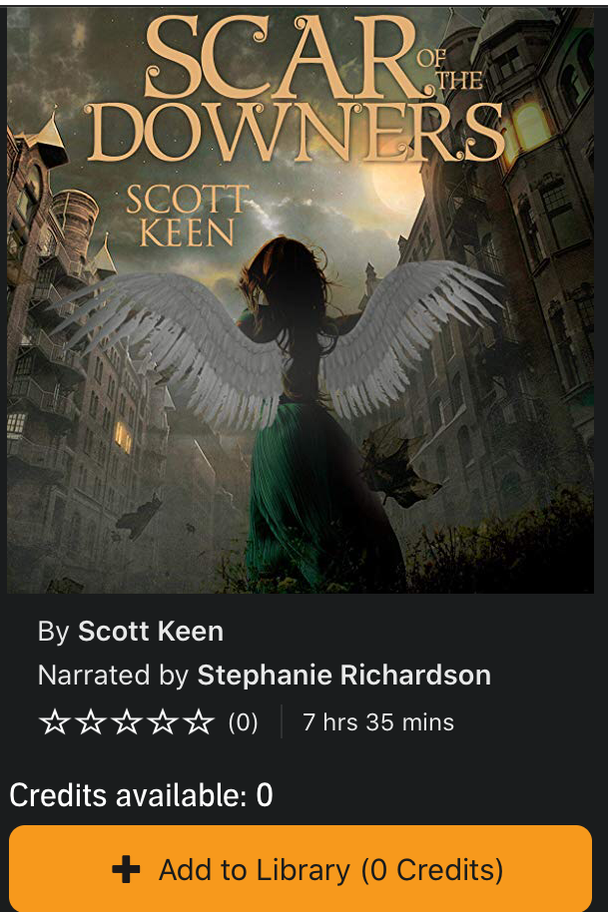|
This past November, my second book in the Scar of the Downer series, Rise of the Branded, was released. Trying to market this book and get it “out there” has proved just as difficult as the first book, and in some ways, more so.  So, what do you do when you live in a rural area? There aren’t as many opportunities around here to promote my book as I would like. Then again, people don’t read as much as they used to. Film, television shows, sports, and a host of other things take up most of people's time. Is this a good, a bad, or a neutral? I would argue, like many other authors, it is definitely a bad thing. But why? Why is it bad? What does reading really do for you? We have seen the memes that tell us how reading a book opens up a world, enables us to meet characters, go on adventures, etc… But it also does so much more. Unfortunately, according to The Atlantic, the number of non-reading adults has nearly tripled since 1978. This is troubling. Reading and writing is perhaps one of the best ways to combat tyranny. I would argue that a society that doesn’t read is ripe for oppression. There must be something to it since the Great Purges of 1937 and 1938 in the Soviet Union killed or exiled many authors. In America, however, only 28 percent of people read at least eleven books in a year. Authors make a much less impression than they did 70 years ago. In fact, you don't have to go that far back. In 1978, 42 percent of adults read that same number of books. That's a stark picture. We can see how much reading has declined in America. This is sad because reading actually makes one smarter and, some suggest, more compassionate. When we read, we envision ourselves in the shoes of the protagonist. That enables us to see beyond ourselves, not making us so isolated. Stories are important. Even Christ taught through parables. When I was younger (early 20s), I read a lot of nonfiction (philosophy, political books, some Christian books). Something, however, was missing, something I couldn't put my finger on. Eventually, I figured out what it was. You see, nonfiction tells you that you can be better while fiction shows you that you can be better. I didn’t figure this out until I started to read it. I began with some books I missed growing up, but didn’t stop there. I read adult fiction, comic books, young adult fiction, children’s literature, literary classics from Jane Austen to Charles Dickens to Victor Hugo to Erich Maria Remarque. What I discovered is that reading is like the cutting of an umbilical cord. It tells you that you are free (not in a spiritual sense.) That, I believe, is something only Christ can do. But it does teach you how to think independently. How is this so? It seems like a paradox that another man’s words enable someone else to think autonomously. But it works if you let it. The reader is someone who doesn’t necessarily look for a leader. Why? Because he is willing to take a journey on his own. Now, I know that this isn’t completely clear-cut. There are readers who are more sheep-like (and not in the good way) and there are nonreaders that think independently. For the most part, we live “humdrum” lives. We go to work for over 40 hours a week and set our eyes on the next vacation as a way to deal with the next interval of mindless employment. It is much harder to pack up our things and go on an adventure in this day and age. Unfortunately, there is probably some sort of federal regulation restricting that. Reading doesn’t necessarily free your body, but it does free your mind. To me, it’s that important. But to our country, it is a dying notion. When it comes to literacy, 43% of adults in America are at or below a basic level. Another 44% are at an intermediate level, while only 13% were proficient. We, as a country, need to read more. We are losing something because of it, something that is not easily defined. Something that’s not necessarily tangible. But if it ever goes away, it will be ever so noticeable.
Think about this. If reading wasn’t important, then books would be pointless. If books are pointless, governments wouldn’t work to ban them. If governments go to that length, then there must be power in words, thoughts, and stories. We have to hold on to it. If this sounds ridiculous to you, I say this. Open a book, read it, and find out for yourself.
0 Comments
Leave a Reply. |
AudiobookArchives
February 2021
Categories
All
|


